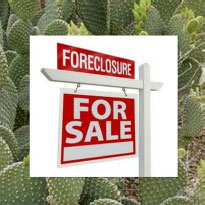Short Sales
Interested in Buying a Short Sale Property? Search now!
 When your mortgage is under water (you owe more than its worth) and the sky turns from blue to gray, it is time to avoid foreclosure and you may want to sell at any price. In this case, a short sale looks to be the best alternative.
When your mortgage is under water (you owe more than its worth) and the sky turns from blue to gray, it is time to avoid foreclosure and you may want to sell at any price. In this case, a short sale looks to be the best alternative.
Today, due to overwhelming market changes, banks and lenders have become much more willing to negotiate short sales. Recent changes by the Obama administration have improved the chances of getting a short sale approved. If you are considering a short sale you must to understand that is long process and has its owns pitfalls. Every short sale is dependent upon the seller’s lender(s) consenting to the transaction and agreeing to release the lender’s security interest in exchange for less than what is owed. This seems like a simple transaction, but it is a complicated process that takes the expertise of experienced professionals including a tax advisor. You can contact us to identify all possible options.
A short sale is an alternative to foreclosure and may be an option if:
- You are ineligible to refinance or modify your mortgage
- You are facing a long-term hardship
- You are behind on your mortgage payments
- You owe more on your home than it’s worth
- You have not been able to sell your home at a price that covers what you still owe on your mortgage
- You can no longer afford your home and are ready or need to leave
A short sale in real estate is not always a pleasant transaction. All lenders have varying requirements and may demand that a borrower submit a wide array of documentation. The following steps will give you a pretty good idea of what to expect.
Call the Lender
You may need to make a half dozen phone calls before you find the person responsible for handling short sales. Also, your real estate agent Can assist you in handling the short sale.
Submit Documents
- Letter of Authorization Lenders typically do not want to disclose any of your personal information without written authorization to do so. If you are working with a real estate agent, closing agent, title company or lawyer, you must send a letter to the lender giving the lender permission to talk with those specific interested parties about your loan. Each Lender has their own form that can usually be faxed.
- Preliminary Net Sheet Your closing agent or lawyer should be able to prepare this for you. This is an estimated closing statement that shows the sales price you expect to receive and all the costs of sale, unpaid loan balances, outstanding payments due and late fees, including real estate commissions, if any.
- Hardship Letter The sadder, the better. This statement describes how you got into this financial situation and makes a plea to the lender to accept less than full payment.
- Proof of Income and Assets It is best to be truthful and honest about your financial situation and disclose assets. Lenders will want to know if you have savings accounts, money market accounts, stocks or bonds, negotiable instruments, cash or other real estate or anything of tangible value. Lenders are not in the charity business and often require assurance that the debtor cannot pay back any of the debt that it is forgiving.
- Copies of Bank Statements If your bank statements reflect unaccountable deposits, large cash withdrawals or an unusual number of checks, it’s probably a good idea to explain each of those line items to the lender. In addition, the lender might want you to account for each and every deposit so it can determine whether deposits will continue.
- Comparative Market Analysis The lender will ask for a comparative market analysis (CMA). Your real estate agent can prepare a CMA for you, which will show prices of similar homes that are active on the market, pending sales, and solds from the past six months.
- Purchase Agreement & Listing Agreement Once you have your home listed and under contract, you are ready to send all the above-mentioned documents to the lender. If you have a second mortgage, the process is the same and it has to be done at the same time otherwise you can have problems with the short sale approval date to close.
Foreclosures
Interested in Buying a Foreclosure? Search now!
 If none of the options for avoiding foreclosure work for you, the lender will take legal ownership of a home to recover the cost of an unpaid mortgage. It’s an awful situation that nobody wants to find himself in, but that has become common as a result of the nation’s housing crisis. In fact, hundreds of thousands of foreclosures are filed by lenders each month. The situation can be a big blow to your desire to own your own home. After all, you worked hard to buy your home only to see it taken away from you. You may think you will never again be in a position to buy another one. However, while your credit score will indeed be affected by a foreclosure, it may only be a matter of time before you can buy once again. For FHA, Fannie Mae, Freddie Mac, and VA loans, a sufficient amount of time, known as a “waiting period,” has to have passed since the short sale or foreclosure was completed before you will be eligible. The waiting periods for each type of situation, short sale or foreclosure, are dependent upon the type of loan you pursue. The chart below outlines the current waiting periods by situation and type of loan. We recommend that you contact your lender to learn about the new loan guidelines for buying a property after a short sale or foreclosure.
If none of the options for avoiding foreclosure work for you, the lender will take legal ownership of a home to recover the cost of an unpaid mortgage. It’s an awful situation that nobody wants to find himself in, but that has become common as a result of the nation’s housing crisis. In fact, hundreds of thousands of foreclosures are filed by lenders each month. The situation can be a big blow to your desire to own your own home. After all, you worked hard to buy your home only to see it taken away from you. You may think you will never again be in a position to buy another one. However, while your credit score will indeed be affected by a foreclosure, it may only be a matter of time before you can buy once again. For FHA, Fannie Mae, Freddie Mac, and VA loans, a sufficient amount of time, known as a “waiting period,” has to have passed since the short sale or foreclosure was completed before you will be eligible. The waiting periods for each type of situation, short sale or foreclosure, are dependent upon the type of loan you pursue. The chart below outlines the current waiting periods by situation and type of loan. We recommend that you contact your lender to learn about the new loan guidelines for buying a property after a short sale or foreclosure.
| EVENT | WAITING PERIOD | ||
|---|---|---|---|
| Fannie Mae/Freddie Mac Loan | VA Loan | FHA Loan | |
| Short Sale | 4 years + 10% down payment or 2 years + 20% down payment or 2 years + 10% down w/extenuating circumstances |
2 years | 3 years |
| Foreclosure | 7 years or 3 years with extenuating circumstances |
2 years | 3 years |


